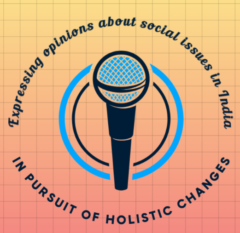
The journey of LGBTQIA+ rights in India has been long and challenging. While significant progress has been made, many hurdles remain. This blog explores the history, current status, and future of Lesbian, Gay, Bisexual, Transgender, Intersex, Queer/Questioning, Asexual+(LGBTQIA+) rights in India. We will discuss key challenges, the evolving legal landscape, political promises, societal attitudes, and corporate support for LGBTQIA+ rights.
Historical Overview of LGBTQIA+ Rights in India
The history of LGBTQIA+ rights in India is rooted in colonial law. In 1861, the British introduced Section 377 of the Indian Penal Code. This law criminalized “carnal intercourse against the order of nature.” For over 150 years, it created immense stigma and fear.
In 2018, a landmark Supreme Court ruling decriminalized consensual same-sex relationships. This decision marked a significant victory for the community. However, it did not address other pressing issues such as marriage equality and anti-discrimination laws.
Activists have worked tirelessly to raise awareness about LGBTQIA+ rights in India. They have organized pride marches and awareness campaigns across the country. These efforts have increased public understanding and support for LGBTQIA+ individuals.
Current Status of LGBTQIA+ Rights in India
Today, the legal landscape for LGBTQIA+ rights in India remains complex. While Section 377 is no longer enforced, same-sex couples still lack legal recognition. They cannot marry or adopt children legally.
According to recent surveys, 95% of urban Indians support queer relationships. Yet, only a small percentage of advertisements feature LGBTQIA+ representation. This gap highlights ongoing societal stigma.
Moreover, many LGBTQIA+ individuals face discrimination in various aspects of life. A staggering 96% of trans individuals have reported job denial due to their identity. This discrimination leads to economic hardships and mental health issues.
Challenges Faced by the LGBTQIA+ Community in India
The challenges faced by the LGBTQIA+ community in India are numerous and varied. Discrimination is prevalent in workplaces, healthcare settings, and housing. Many individuals experience harassment from family members and society.
Healthcare access is another major issue for LGBTQIA+ individuals. Many healthcare providers lack training on LGBTQIA+ needs. Consequently, individuals often avoid seeking medical help due to fear of judgment.
Mental health challenges are also significant within the community. A survey revealed that 66% of LGBTQIA+ individuals feel uncomfortable discussing their healthcare needs. This discomfort stems from societal stigma and discrimination.
Impact of Political Promises on LGBTQIA+ Rights
During the time of elections, as was seen during the 2024 Lok Sabha elections, political promises are made to tap into this sizable vote bank, assuring them equality in status. Many political parties had included LGBTQIA+ rights in India in their manifestos for the first time.
However, there are concerns about the sincerity of these promises. Activists worry that these pledges may be mere tokenism without real intent to enact change. For instance, while some parties promise marriage equality, others remain silent on critical issues affecting the community.
Political representation is essential for advancing LGBTQIA+ rights in India. As activist Zoya Thomas Lobo stated, “We need leaders who understand and champion our rights.” Without genuine political will, progress may stall.
Societal Attitudes Towards the LGBTQIA+ Community
Societal attitudes towards LGBTQIA+ individuals vary across regions in India. In urban areas, acceptance is gradually increasing. However, rural areas often exhibit deep-rooted conservatism and prejudice.
Comparatively, countries like Canada and Germany have made significant strides in recognizing LGBTQIA+ rights. In these nations, same-sex marriage is legal, and anti-discrimination laws are robust.
In contrast, India’s progress has been slow despite its large LGBTQIA+ population of approximately 135 million people. The lack of comprehensive legal protections continues to hinder equality efforts.
Role of Indian Companies in Supporting LGBTQIA+ Rights
Indian companies play a vital role in promoting inclusion for LGBTQIA+ individuals. Many organizations have begun implementing diversity policies to create safe workplaces.
However, only about 1% of advertisements feature LGBTQIA+ representation. This lack of visibility reflects broader societal attitudes that need change.
Companies like Tata Consultancy Services (TCS) have taken steps to support LGBTQIA+ employees through training programs and inclusive policies. These initiatives foster an environment where everyone feels valued.
Quotes from Eminent Personalities
Several prominent figures have spoken out about LGBTQIA+ rights in India:
- Kiran Bedi, former police officer: “Acceptance comes from understanding and education.”
- Ravi Shankar Prasad, former Union Minister: “We must ensure that every citizen enjoys equal rights.”
- Nandita Das, actress and activist: “Our identities should not be a reason for discrimination.”
These quotes emphasize the importance of understanding and acceptance for achieving equality.
Holistic Changes Needed for Acceptance
To foster a more inclusive society for the LGBTQIA+ community in India, several changes are necessary:
- Comprehensive Anti-Discrimination Laws: Implement laws protecting against discrimination based on sexual orientation and gender identity.
- Inclusive Education: Introduce educational programs that promote awareness about diverse sexual orientations.
- Healthcare Training: Train healthcare providers on LGBTQIA+-specific needs to ensure respectful treatment.
- Corporate Responsibility: Encourage companies to adopt inclusive policies actively.
- Community Engagement: Foster dialogue within communities to break down stereotypes and prejudices.
These changes can help create a society where everyone feels welcome and valued.
Conclusion: A Call to Action
The journey towards equality for the LGBTQIA+ community in India is ongoing but filled with hope. It is crucial to hold political leaders accountable for their promises regarding LGBTQIA+ rights.
Change begins with each one of us! Let’s advocate for inclusivity and acceptance within our communities! Together, we can create a society where everyone enjoys equal rights and opportunities!

Initially there was asexuality (as in Amoeba). Then there was bisexuality (or hermaphroditism as in flat worms and annelids). Then there occurred unisexuality (of males and females from arthropods onwards). Now what is happening? Are we going back to asexuality?
Hahaha…something to ponder on…